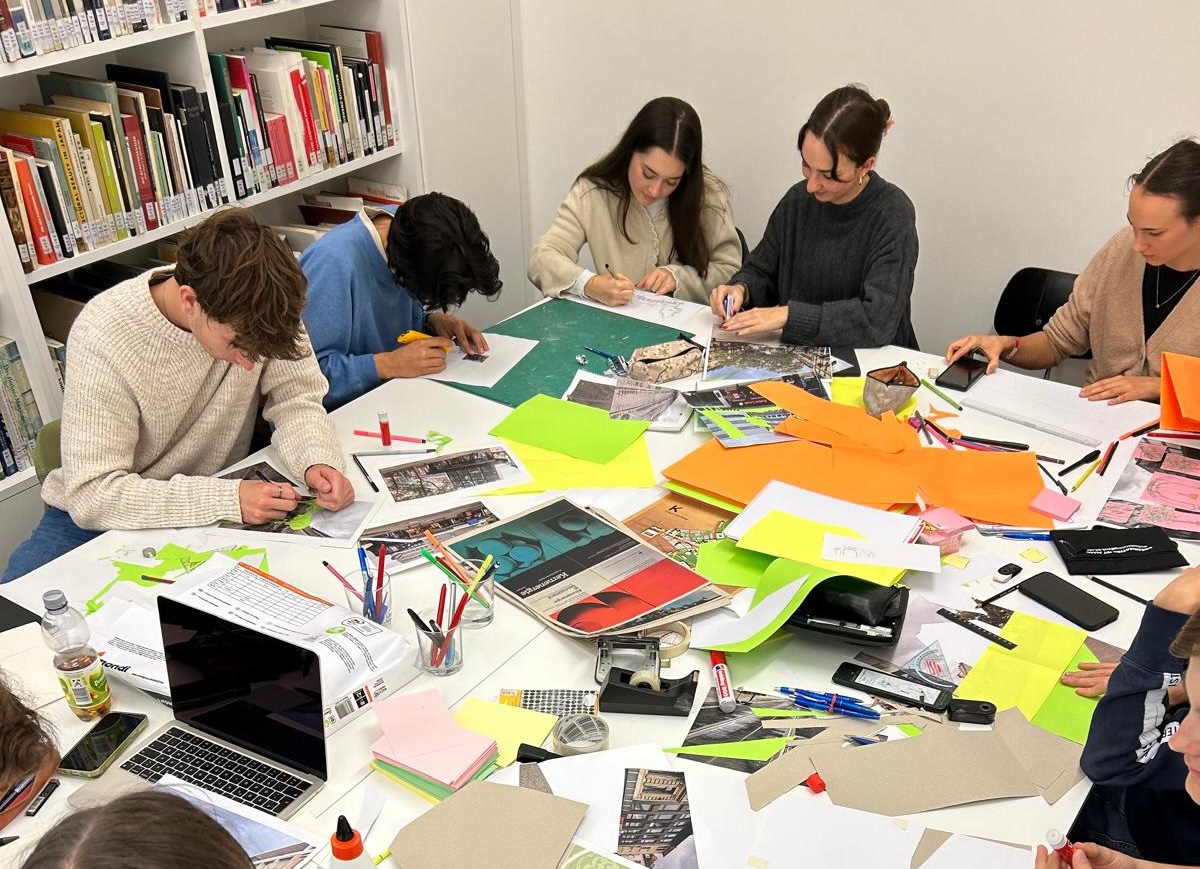Prof. Dr. Anna-Maria Meister
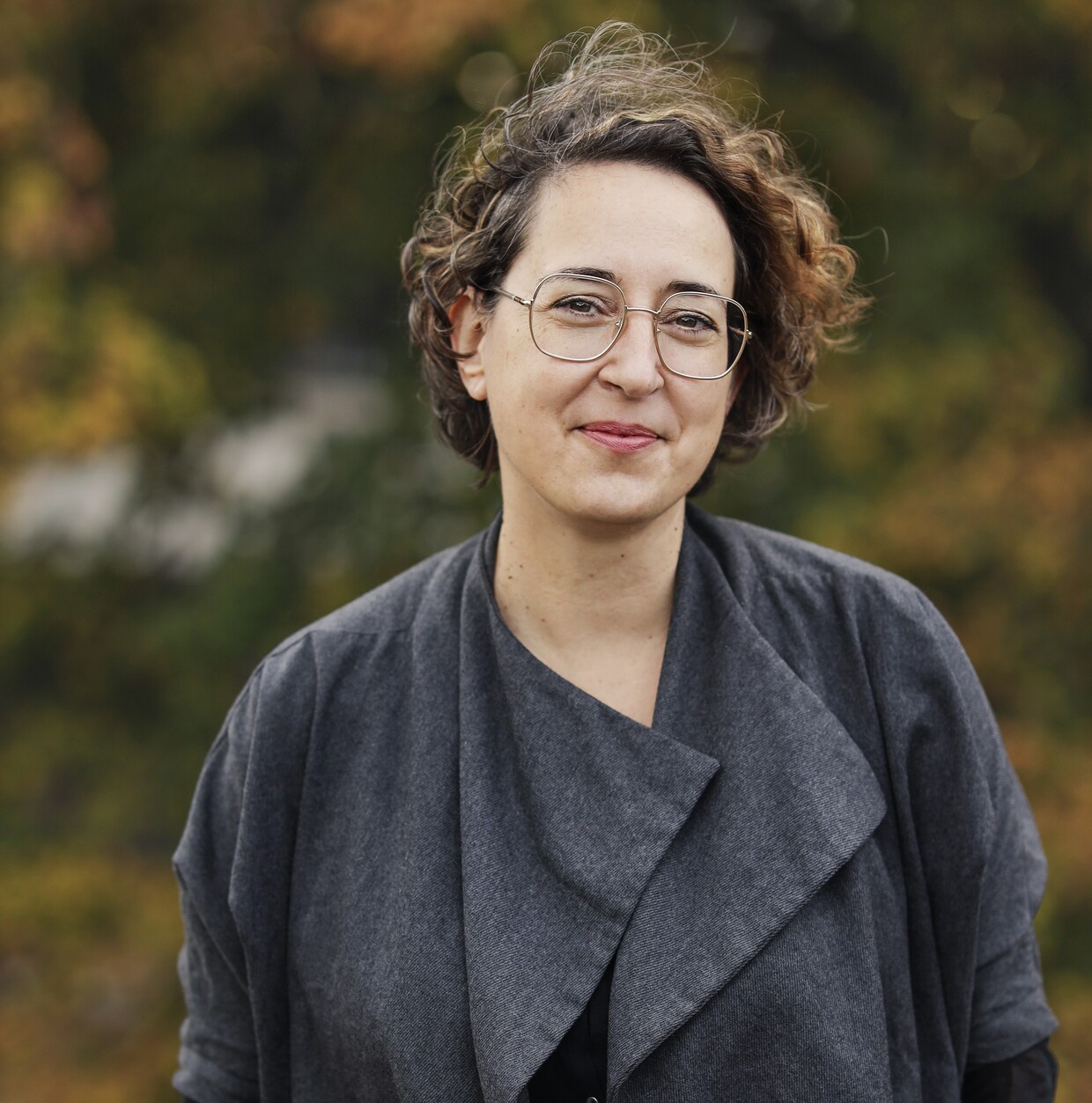
Anna-Maria Meister directs the Lise Meitner Research Group "Coded Objects" at the Kunsthistorisches Institut in Florenz (KHI) - Max Planck Institute, and is professor for architecture theory and co-director of the saai archive at KIT Karlsruhe. Meister’s work focuses on processes of design and the design of processes, specifically their political, social, and aesthetic consequences; she also investigates the materiality of knowledge systems and their constructions. She holds a joint PhD degree in the History and Theory of Architecture and the Council of the Humanities from Princeton University as well as degrees in architecture from Columbia University and the TU Munich. Her work has been supported by grants and fellowships from the Max Planck Institute for History of Science, Berlin, the Graham Foundation, the Berlin Program for Advanced German and European Studies, DAAD; 2025 she was selected as Henriette-Herz-Scout for the Humboldt Foundation. As licensed architect and historian she works across medial divides and has curated exhibitions and produced installations at the Venice Biennial 2014, the Lisbon Triennial in 2013, and at Princeton University in 2024. Her research was published in journals like British Journal for the History of Science, Architectural Histories, Journal for the History of Knowledge, Historical Studies in the Natural Sciences, Harvard Design Magazine, Volume, Uncube; in 2024, she was runner-up for "EAHN Best Article Award for Architectural Histories for the volumes 2022 and 2023".Most recently she co-edited the international research project Radical Pedagogies and the eponymous book (MIT Press 2022), the interdisciplinary volumes Entangled Temporalities (2023) and Are You a Model? (2024); currently, she is editing a double volume titled Coded/Objects and a completing monograph on standardization as societal projection in 20th century Germany.
-
Colomina, Beatriz, Ignacio Gonzalez Galan, Evangelos Kotsioris, Anna-Maria Meister. Radical Pedagogies. Cambridge, MA: MIT Press (2022).
-
Meister, Anna-Maria. „Archives, Bureaucracies, Architecture: Now You See Me, Now You Don't“ in Dimensions, issue 1 (Spring 2021).
-
Meister, Anna-Maria. „Ernst Neufert's 'Lebensgestaltungslehre': Formatting Life beyond the Built“ in „Learning by the Book“ (eds. A. Creager, M. Grote, E. Leong) BJHS Themes 5 (2020): 167–85. mehr
-
Meister, Anna-Maria. „'Architects and Housewives': Rationalizing Architecture after WWI“ in a special issue of Architecture Histories (Journal of the EAHN). Eds. S. Hochhäusl and E. Sassin.
-
Meister, Anna-Maria. „Paper(less) Architecture: Medial and Institutional Superimpositions“ in The Architecture Machine. The Role of Computers in Architecture. Edited by Teresa Fankhänel and Andres Lepik (Birkhäuser: 2020).
-
Meister, Anna-Maria. „From Musterhaus to Meisterhäuser: A trajectory of typologies,“ in Dust and Data, ed. Ines Weizman. Berlin: Spectorbooks (2019).
-
Meister, Anna-Maria. „Paper Constructions: Ethics and Aesthetics on Paper“ in RadDAR, issue 1 (January 2019).
-
Colomina, Beatriz, Ignacio Gonzalez Galan, Evangelos Kotsioris, Anna-Maria Meister. „Radical Pedagogies: Notes Towards a Taxonomy of Global Experiments“ in Building Cultures Valparaiso: Pedagogy, Practice and Poetry at the Valparaiso School of Architecture and Design, eds. Sony Devabhaktuni, Patricia Guaita and Cornelia Tapparelli. London: Routledge Chapman&Hall (2016).
-
Meister, Anna-Maria. „Formatting the Modern Dream“ in Harvard Design Magazine issue 43 „Shelf Life“ (Fall 2016).
-
Meister, Anna-Maria. „The Radical Pedagogies Project“ (co-authored with Beatriz Colomina, Ignacio G. Galán, Evangelos Kotsioris) inVolume n. 45 „Learning“ (2015).
-
Colomina, Beatriz, Ignacio Gonzalez Galan, Evangelos Kotsioris, Anna-Maria Meister. „Radical Pedagogies: Educating Change“ in Quaderns d'Arquitectura i Urbanisme, Publicació del Col∙legi d'arquitectes de Catalunya, 267 (2015).
-
Meister, Anna-Maria. „Radical Remoteness: The HfG Ulm as Institution of Dissidence,“ in Architecture and the Paradox of Dissidence, ed. Ines Weizman. London: Routledge (2013).
-
Meister, Anna-Maria. „Für James Bond reicht's noch (Mendelsohn's Red-Banner Factory in St. Petersburg)“ in Baumeister 2 (February 2012).
-
Colomina, Beatriz, Esther Choi, Ignacio Gonzalez Galan, Anna-Maria Meister. „Radical Pedagogies in Architectural Education“ in Architectural Review 1388 Volume CCXXXII (October 2012).
-
Meister, Anna-Maria. „Architecture in Uniform.“ Review of Architecture in Uniform by Jean-Louis Cohen, in Archplus 204 (October 2011).
-
Meister, Anna-Maria. „The Space Left Behind“ in Reception Rooms. Princeton: IHUM (2011).
-
"Radical Pedagogies." Invited Talk (with B. Colomina, I. G. Galán and E. Kotsioris) at the Museum of Modern Art, New York, September 2022.
-
"Radical Pedagogies: Methods of a Global Project." Eingeladener Vortrag an der Tokyo University, Februar 2022.
-
"Processing Models, Modelling Processes." Eingeladener Vortrag an dem Symposium Digital.Visual.Material., Carnegie Mellon University, May 2021.
-
"Of Volunteers, Vereine and Housewives: The Makers of Modern German Architecture." Eingeladener Vortrag, ETH Zurich, April 2021.
-
"Gleichheit, Gemeinnützigkeit, Globaler Export: Das DIN Institut in der modernen Architektur." Eingeladener Vortrag, ETH Zurich, März 2021.
-
"Architecture from the Karteikasten: Ernst Neufert's Total Systems of Order." Eingeladener Vortrag, Center for Critical Studies in Architecture (CCSA), German Architecture Museum (DAM) Frankfurt, Januar 2020.
-
"Radical Pedagogies." Eingeladener Vortrag an dem Symposium Architectures of Education, Nottingham Contemporary, November 2019.
-
"Scripting, Norming, Regulating: A Proto-Algorithmic Architecture History?" Eingeladener Vortrag im Forschungsseminar 1955-1961 Design and Languagues, Ecole Nationale Superiereure Paris-Saclay, Paris, May 2019.
-
"Radical Pedagogies: Radicalism versus Institutionality." Eingeladener Vortrag im Rahmen der Reihe Testing University, HafenCity Universität Hamburg, Januar 2019.
-
"Radical Pedagogies. Action-Reaction-Interaction." Installation auf der Architekturbiennale Venedig (mit B. Colomina, B. Eversole, E. Kotsioris, I. G. Galán, F. Vannucchi), Venedig, Mai-November 2014.
-
"Radical Pedagogies. A (provisional) Cartography." Installation auf der 3. Lisbon Architecture Triennale Close, Closer (mit B. Colomina, I. G. Galán und E. Kotsioris), Lisbon, September 2013.
-
"The Secret Life of Plants." Ausstellung (mit A. Acciavatti and J. Dolven), Princeton University, 2013.
-
"Thesis Matter(s)." Ausstellung und Multimedia Installation (mit Ignacio G. Galan, B. Eversole, F. Vannucchi), Princeton University, 2012.
Dr. Tom Wilkinson
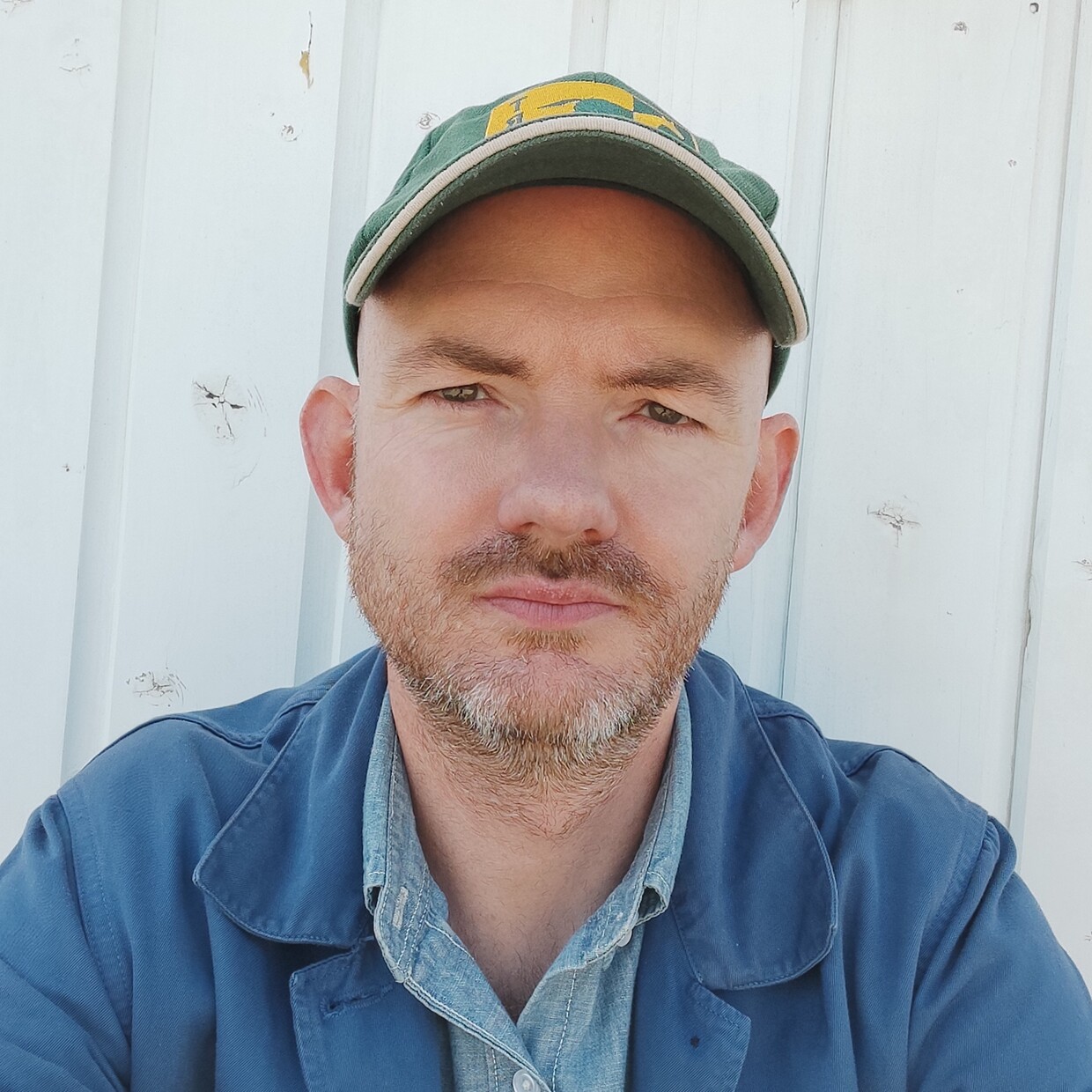
Tom Wilkinson is a writer and historian specializing in modern and contemporary architecture and visual culture. His research interests span waste in modernism, the architecture of bathing, and the architecture of Brazil. He holds a PhD in art history from University College London. He previously taught at the Courtauld Institute and Birkbeck College, University of London, and was a Leverhulme Early Career Fellow at the Warburg Institute. His most recent book, "Emergency Money: Notgeld in the Image Economy of the German Inflation, 1914-1923" was published by MIT in 2024; his debut book, "Bricks and Mortals: Ten Great Buildings and the People They Made," was published by Bloomsbury in 2014. He regularly writes for the Architectural Review, where he was previously History Editor, and has contributed to various other publications, including Detail, The Guardian, Jacobin, Domus, Tribune, Apollo, and the Architect's Journal. He is also co-director of New Architecture Writers, a program for young people of colour which he co-founded in 2017.
-
Emergency Money: Notgeld in the Image Economy of the German Inflation, 1914-1923 (under contract with MIT; forthcoming in 2024).
-
‘Life in Ruins: The Fetishization of Decay in Contemporary Architecture’, in Otto Habeck and Frank Schmitz (eds), Ruinen und vergessene Orte: Materialität im Verfall – Nachnutzungen – Umdeutungen (Bielefeld: Transcript, 2023).
-
‘Junkology’, in Ursula Schulz-Dornburg, Huts, Temples, Castles (London: MACK, 2022).
-
‘Notgeld’, in Barbara Penner, Adrian Forty, Olivia Horsfall Turner, and Miranda Critchley (eds), Extinct: A Compendium of Obsolete Objects (London: Reaktion, 2021), pp.220-223.
-
‘Romford: The Suburban Vanguard’, in Owen Hatherley (ed.) The Alternative Guide to London’s Boroughs (London: Open House, 2020), pp. 80-86.
-
‘Why are Berlin’s New Buildings So Intent on Looking Backwards?’, Apollo, October 2020.
-
‘A Journey Around My Flat: Shut-in Strategies’, Architectural Review, June 2020
-
‘Money Matters: The Art of the German Inflation’, Apollo, February 2020
-
‘Art History on the Radio: Walter Benjamin and Wilhelm Pinder 1930/1940’, Oxford Art Journal 39, no. 1 (2016), 49-66.
-
Bricks and Mortals: Ten Great Buildings and the People they Made (London: Bloomsbury, 2014).
-
‘Chiaroscuro: A Social History of Nightclubs’, Nightclubs and Metropolis, invited talk, Seoul, September 2023.
-
‘Siegfried Kracauer: Architectural Employee’, invited talk for Struggles in the Concrete – Architecture, Architectural History and the Marxist Tradition, Birkbeck, University of London, April 2023.
-
‘Junkology: Ursula Schulz-Dornburg in Jongensland’, invited talk for Come Out and Play! Youth and Placemaking in Public Space, Aedes Architectural Forum, Berlin, April 2023.
-
‘Mies: the Re-enchantment of Technology’, invited talk at Bartlett School of Architecture, UCL, January 2022.
-
‘Architectural Criticism’, invited talk for Cardiff University School of Architecture, January 2022.
-
‘Money Talking to Itself: Central Bank Museums’, conference paper for Making the Social World Objective, University of Zürich, November 2021.
-
‘Ruins of the Future: Building Decay in Contemporary Architecture’, conference paper for Ruins from the Perspective of Cultural Studies and Humanities, University of Hamburg, April 2021.
-
‘Alchemy in Reverse: Emergency Money of the German Inflation’, invited talk for the Courtauld Institute, November 2020.
-
‘The Network is the Public: Altered Postcards in Twentieth Century Germany’, conference paper for The Circulation of Images, Centre of Excellence Jean Monnet IMAGO (Paris, École normale supérieure), in partnership with the University of Geneva (Chair of Digital Humanities), Purdue University, and the Beaux Arts de Paris, June 2020.
-
‘Jamming the Discourse Network: Politics and the Postcard in Early Twentieth-Century Germany’, conference paper for College Art Association Annual Conference, Chicago, February 2020.
Tinatin Gurgenidze
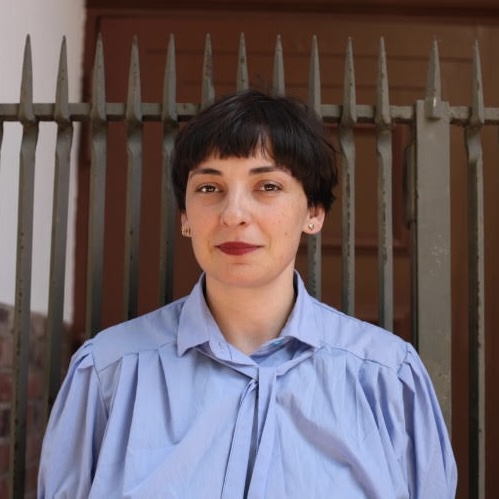
Dr. Joshua Silver

Joshua Silver is a Postdoctoral researcher at the saai Archive for Architecture and Engineering. His research examines the transfoming digital dependencies of architectural practice and production since the 1980s, drawing upon ethnographic, historical and digital methods. Moving beyond the formal and representational outcomes of digital technologies, Joshua seeks to address the wider array of participants and practices these technologies sustain, while exploring the possibilities of an architectural counter-computing. Joshua is additionally the Co-Investigator of the Late Antiquity Modelling Project (LAMP) which studies the built landscape of Late Antiquity architecturally through digital methods. Joshua holds a PhD from the University of Manchester along with an M.Arch degree and Bachelor of Arts from the University of Toronto.
Dr. Maryia Rusak
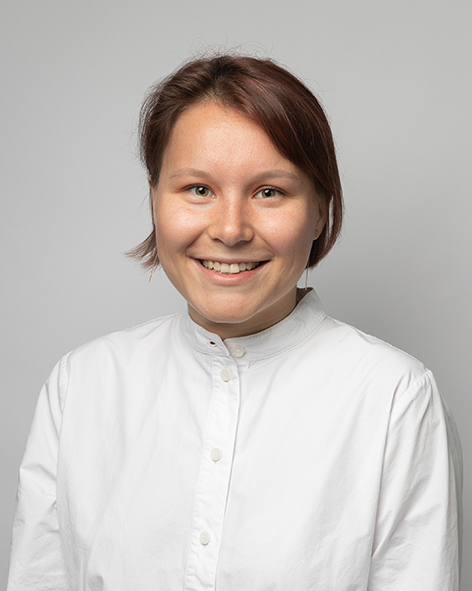
Maryia Rusak is an architect and architectural historian who works with transnational histories. She is currently a Junior Research Fellow at Karlsruhe Institute of Technology. Recently, she has been an ETH Postdoctoral Fellow (2022-24) at the Chair of the History and Theory of Urban Design, ETH Zurich. Her current research projects range from investigating the Nordic architecture of foreign aid in postcolonial Africa to the 1960s histories of early use of intra-European programming in architecture. As a researcher, Maryia is particularly interested in the histories of everyday objects, networks of bureaucratic institutions, obscure intricacies of architectural production and, in general, how buildings are made.
Maryia completed her PhD at the Oslo School of Architecture and Design (AHO) in 2022; she holds an M.Arch. in Sustainable Urban Planning and Design from KTH, Stockholm, and a BA in Architecture from Princeton University, USA. Recently, she was a Visiting Fellow at the Architectural Theory Research Centre at the University of Queensland, Australia (2023) and a research fellow at the Bauhaus Global Modernism Lab in Dessau (2020).
Maryia’s writings appeared in the Architectural Theory Review (2022), The Journal of Architecture (2024), OASE (2024), Footprint (2024), Journal of Architectural Design and History (2024), and two book chapters with the KU Leuven University Press (2024) and TU Delft (2025).
Dr. Virginia Marano
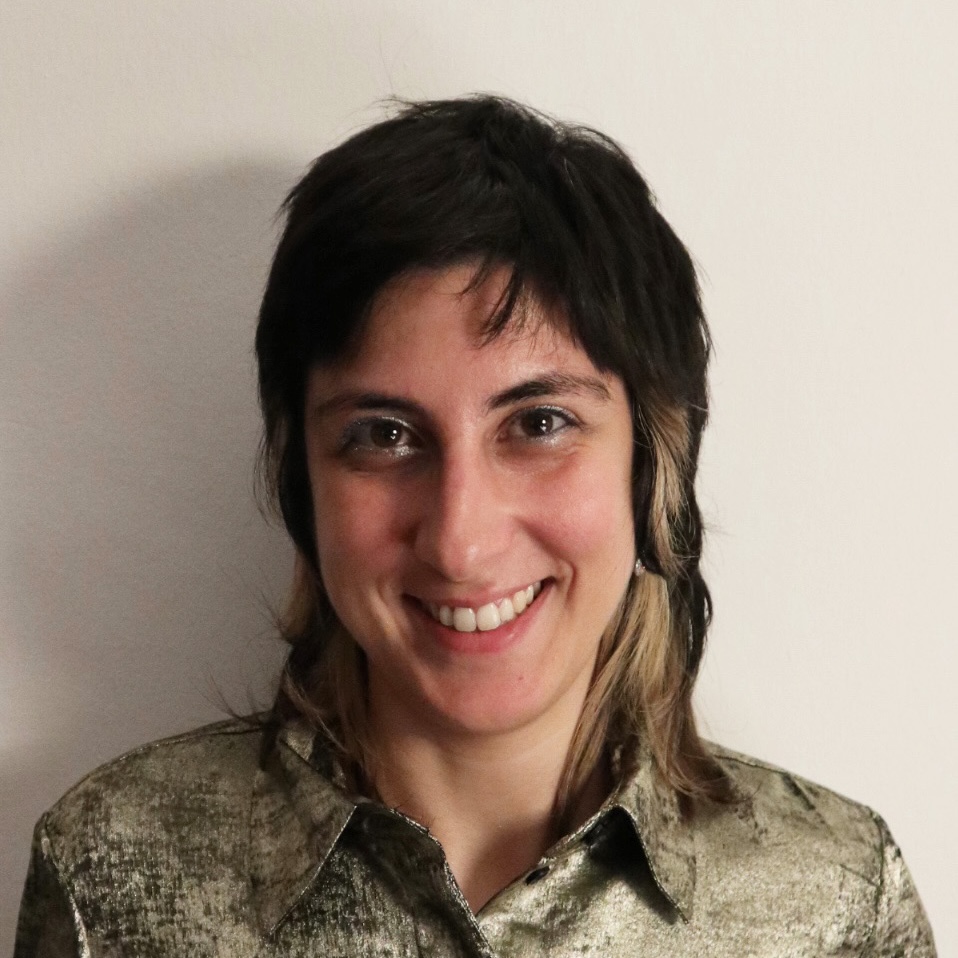
Virginia Marano is an art historian and curator whose work critically engages contemporary art through disability studies and the histories of architecture and design. She is currently a Junior Research Fellow in the Young Investigator Group Preparation Program (YIG Prep Pro) at the Karlsruhe Institute of Technology (KIT) and an associate scholar in the Lise Meitner Group “Coded Objects,” led by Anna-Maria Meister at the Kunsthistorisches Institut in Florenz – Max-Planck-Institut. She earned her PhD in art history from the University of Zurich, where her research was supported by an FCS doctoral scholarship (2018–2021) and a FAN research grant (2021). Her work has been further supported by the Swiss National Science Foundation through a Doc.Mobility fellowship at the Art History Department at Hunter College, CUNY (2022), and by a fellowship at the Fondazione Giorgio Cini in Venice (2023). Alongside her academic research, she worked as a curatorial assistant at MASI, Museo d’Arte della Svizzera italiana, Lugano (2023–2025).
Her research mobilizes disability as a critical method for rethinking contemporary art and exhibition-making. At the intersection of art history, disability studies, and the histories of architecture, design, and technology, she reframes prosthetics, low- and high-tech objects, and accessibility infrastructures as transformative artistic and curatorial strategies. She is co-director of the research project “Rethinking Art History through Disability” at the University of Zurich.
Her writing has appeared in leading peer-reviewed journals and edited volumes, including Image & Text (2023), RACAR (2024), PAD – Pages on Arts & Design (2024), Third Text (2024), publications by Logos Verlag (2024) Hatje Cantz (2025), and the Journal of Design History (forthcoming, 2026).
Hannah Knoop
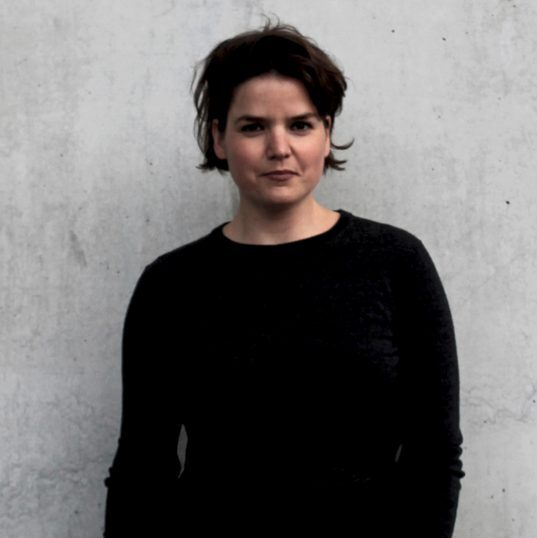
Hannah Knoop [she/her] is an architect, lecturer, and PhD candidate at the Professorship Architecture Theory at KIT, where she is also a member of the KIT Graduate School Cultures of Knowledge (CuKnow). She holds a diploma in architecture from TU Munich and ETSA Madrid, and a MAS in History and Theory of Architecture from gta ETH Zurich. From 2019 to 2025, she was a research associate at the Chair of Architecture Theory at KIT, most recently with Prof. Dr. Anna-Maria Meister.
She is pursuing her PhD under the supervision of Prof. Dr. Georg Vrachliotis (TU Delft) and Prof. Dr. Anna-Maria Meister (KIT), with the working title “How to Design a Basic Human Right. Architecture and its Standardization in the UNHCR Handbook for Emergencies (1982)”. Her research focuses on the political and social dimensions of architecture, with an emphasis on public space, global governance, and the ambiguity of human rights. Her work has been published in academic journals such as OASE and Dimensions, and she has presented at international conferences including AHRA, ISPA, and SAH. At KIT, she taught seminars and lectures in architectural theory, organized excursions, and initiated public formats – most recently “That’s what She says” (with Irene Gazzillo). Her courses were regularly evaluated with top results. Her teaching was supported by the KIT Research-Based Education Grant (with Eleni Zaparta), and her research by the KIT Networking Grant as well as a DAAD grant. Upcoming presentations include AISU Palermo 2025 with the paper “Standardized Care and the Interior of Emergency”. Before joining KIT, she worked as a research assistant at ETH Zurich and TU Kaiserslautern, and as an architect in various German and Swiss offices, including freelance collaborations with studioeuropa (München/ Wien). With her interdisciplinary background and experience across research and practice, Hannah wants to open up new perspectives in architectural theory—particularly regarding architecture’s role in shaping societal frameworks, negotiating norms, and addressing questions of spatial politics.
Maximilian Kelle
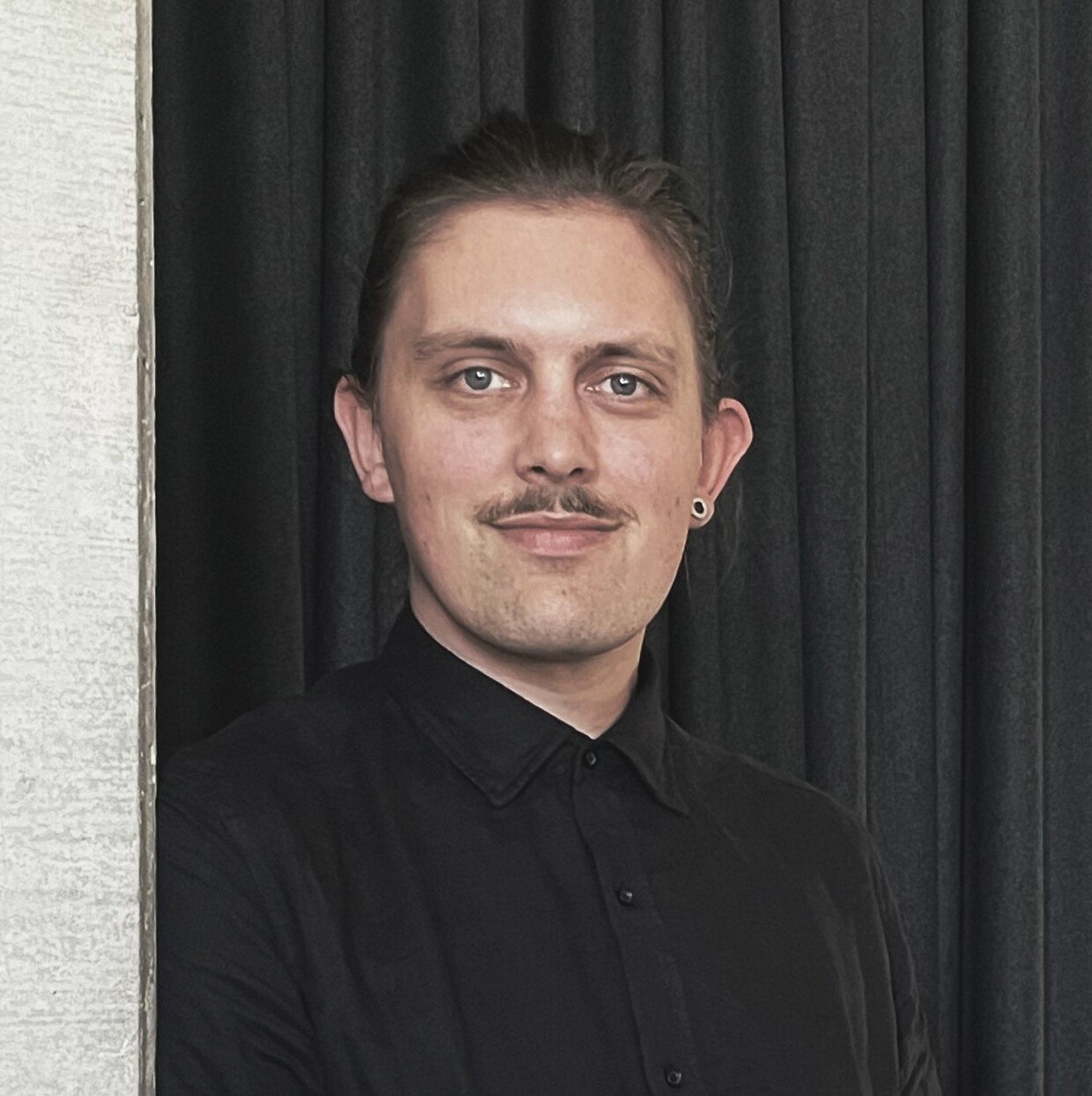
Maximilian Kelle is an educator, researcher and PhD candidate currently based in Frankfurt am Main. His interests are at the intersection of architectural design and research concerning affordable housing and innovative communal ways of living. Educated at RWTH Aachen and TU Darmstadt, he received his Master of Science degree in 2019. Since 2020, he has been working as a research assistant at the Chair of Design and Housing at TU Darmstadt.
Previously, he worked on various architectural projects for Holger Meyer architecture and Wandel Lorch Götze Wach architects and as a teaching assistant at the Chair for Urban Design with Professor Dr. Nina Gribat at TU Darmstadt. At the chair for Urban Design he co-published papers on the squatter movement in Frankfurt as well as the change in university design based on the example of the Johann Wolfgang von Goethe University.
Currently he is researching the development processes and impact on the residents of collective housing projects under the supervision of Prof. Dr. Anna-Maria Meister (KIT) as PhD candidate at the TU Darmstadt.
Carolina Alvarez

Carolina Alvarez is an architect, researcher, and PhD candidate based in Karlsruhe. She holds a diploma in architecture from Colombia's National University and received her Master of Architecture in 2023 from the same institution. That same year, she joined the Chair of Architectural Theory at KIT Karlsruhe as a doctoral candidate under the supervision of Prof. Dr. Anna-Maria Meister. Her interests lie in the expression of tectonics in building facades and the use of nonmaterial elements in architecture, such as shadow and light. Her PhD research analyzes topics like the migration of modern ideas to Latin American countries, the transformation of architectural languages, and the development of local discourses in Latin American Modern Architecture.
Before joining KIT, Carolina worked independently as an architect, for Colombia's National University Extension Office and an American Landscape office on projects of different scales. As a researcher she participated in the development of the exhibition project “Bauhaus Reverberated: A Series of Events on Bauhaus and Latin America”, co-produced by the Faculty of Architecture and Design of the Universidad de los Andes, the Cinematheque of Bogotá, the Goethe-Institut Bogotá, and the Swiss Embassy in Colombia. Furthermore, she worked as a research member for the exhibition of the project “Genealogy of the House of Three Parts and Central Hall: Origin in England (XIV-XIX Century), Presence in Bogotá (1920-1945), and Influence in the Modern House (1920-1960)“ as part of the “Project and Architecture“ research group, in collaboration with the “Architecture, Urbanism and Aesthetics“ group of the University of San Buenaventura, Cali. With this experience, Carolina aims to foster a deeper understanding of exchanges in architectural practices and to encourage innovative and contextually responsive approaches to architectural research and theory.
Kevin Schleifer

Kevin Schleifer trained as a marketing communications specialist and then studied business law. In 2023, he joined the Karlsruhe Institute of Technology (KIT), where he initially worked as a project assistant in Research Group 5339 and at the IMKAAF Institute on Campus North. Since August 1, 2025, he has been a team assistant at the Chair of Architectural Theory.
His personal interests lie in modern history, chess and animal welfare. Kevin sees administration as a service designed to unfold creative and scholarly work. With his diverse background, he brings a unique perspective to architectural theory and supports the team in its efforts to promote innovative approaches to architecture.
Lukas Köhler
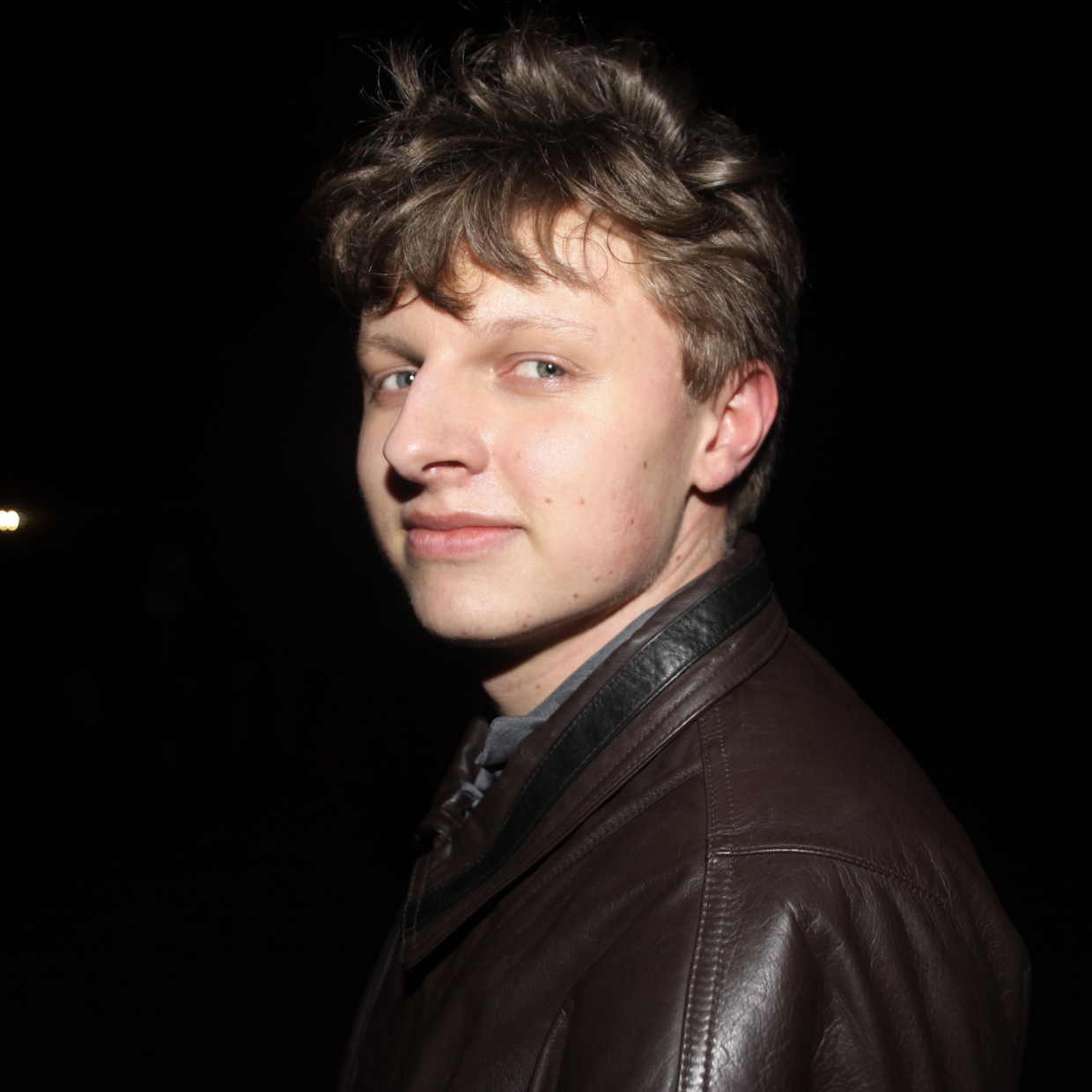
Lukas Köhler has been an architecture student at the Karlsruhe Institute of Technology since 2024 and a student assistant at the Chair of Architectural Theory and the Architekturschaufenster e.V. since 2025. As part of a classical architectural education, he is particularly interested in architectural theory, exhibition design and cultural journalism. Currently he is working on his first contributions to Teresa Fankhänel's “The Architectural Exhibition Review.”
-
‘Reading up’, The Architectural Exhibition Review by Teresa Fankhänel & Clara Frey, 2025
Constanze Ross-Mezger
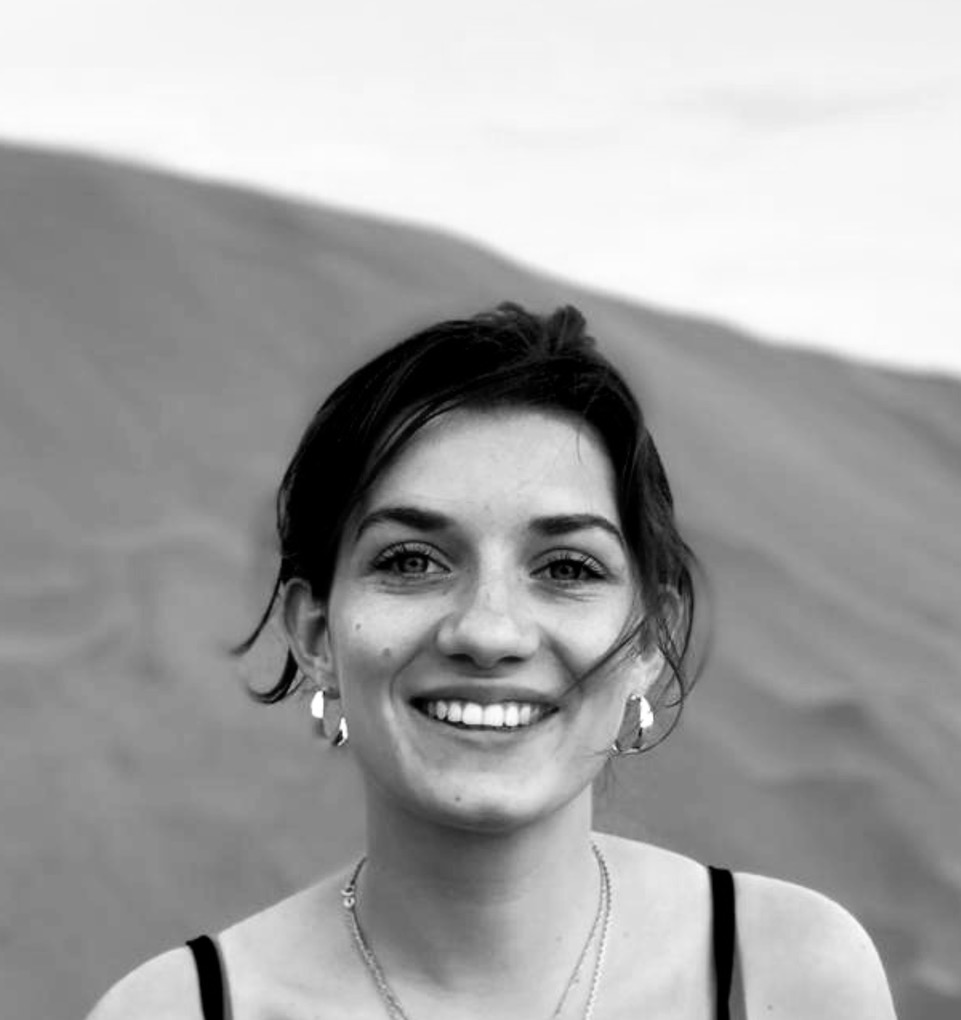
Constanze Ross-Mezger has been a master's student at the Karlsruhe Institute of Technology (KIT) since 2024 and a student assistant at the Chair of Architectural Theory since October 2025. She is particularly interested in architecture exhibitions, journalism, and the political and social discourse associated with architecture.
Former Professors and Researchers
Bart Lootsma (2022-2023, Interim Professor)
Nathalie Bredella (2021-2022, Interim Professor)
Rixt Hoekstra (2021-2022, Guest Researcher)
Oliver Elser (2020, Interim Professor)
Georg Vrachliotis was Professor of Architectural Theory and Director of the saai | Archive for Architecture and Engineering (2014-2020) and Dean of the Faculty of Architecture (2016-2019).
Werner Sewing (2008-2011) was the first professor to hold the Chair of Architectural Theory at the Karlsruhe Institute of Technology. He died at the age of 60. His library was acquired for the KIT Faculty Library of Architecture.
Annelen Schmidt
Bernita Le Gerrette
Christian Platz
Claudia Lordache
Daniel Fischer
Daniel Grenz
Dennis Pohl
Diana Maier
Eleni Zaparta
Florian Dreher
Fotios Kontogiannopoulos
Hannah Knoop
Isabel Steiger Salvador
Johanna Lorch
Lama Alkadi
Lucas Longoni
Lukas Bessai
Manuela Gantner
Meike Weber
Niclas Schlötke
Olivia Larsen
S.E. Eisterer
Silvi Koçiu
Simon Rieß
Sina Brückner-Amin
Sofija Bozic
Stella Gutwein
